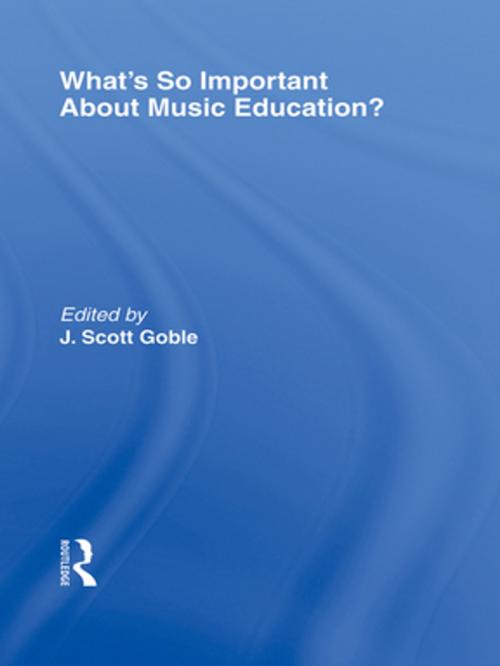What's So Important About Music Education?
Nonfiction, Reference & Language, Education & Teaching, History, Entertainment, Music, Theory & Criticism, History & Criticism| Author: | J. Scott Goble | ISBN: | 9781136988158 |
| Publisher: | Taylor and Francis | Publication: | February 25, 2010 |
| Imprint: | Routledge | Language: | English |
| Author: | J. Scott Goble |
| ISBN: | 9781136988158 |
| Publisher: | Taylor and Francis |
| Publication: | February 25, 2010 |
| Imprint: | Routledge |
| Language: | English |
What’s So Important About Music Education? presents a new philosophy of music education for the United States, rooted in history and current perspectives from ethnomusicology. J. Scott Goble explores the societal effects of the nation's foundations in democracy and capitalism, the constitutional separation of church and state, and the rise of recording, broadcast, and computer technologies. He shows how these and other factors have brought about changes in the ways music teachers and concerned others have conceptualized music and its importance in education. In demonstrating how many of the personal and societal benefits of musical engagement have come to be obscured in the nation’s increasingly diverse public forum, Goble argues for the importance of musical engagement in human life and for the importance of music in education. An ideal text for courses in music education foundations, the book concludes with recommendations for teaching the musical practices of the nation's cultural communities in schools in terms of their respective cultural meanings.
What’s So Important About Music Education? presents a new philosophy of music education for the United States, rooted in history and current perspectives from ethnomusicology. J. Scott Goble explores the societal effects of the nation's foundations in democracy and capitalism, the constitutional separation of church and state, and the rise of recording, broadcast, and computer technologies. He shows how these and other factors have brought about changes in the ways music teachers and concerned others have conceptualized music and its importance in education. In demonstrating how many of the personal and societal benefits of musical engagement have come to be obscured in the nation’s increasingly diverse public forum, Goble argues for the importance of musical engagement in human life and for the importance of music in education. An ideal text for courses in music education foundations, the book concludes with recommendations for teaching the musical practices of the nation's cultural communities in schools in terms of their respective cultural meanings.















